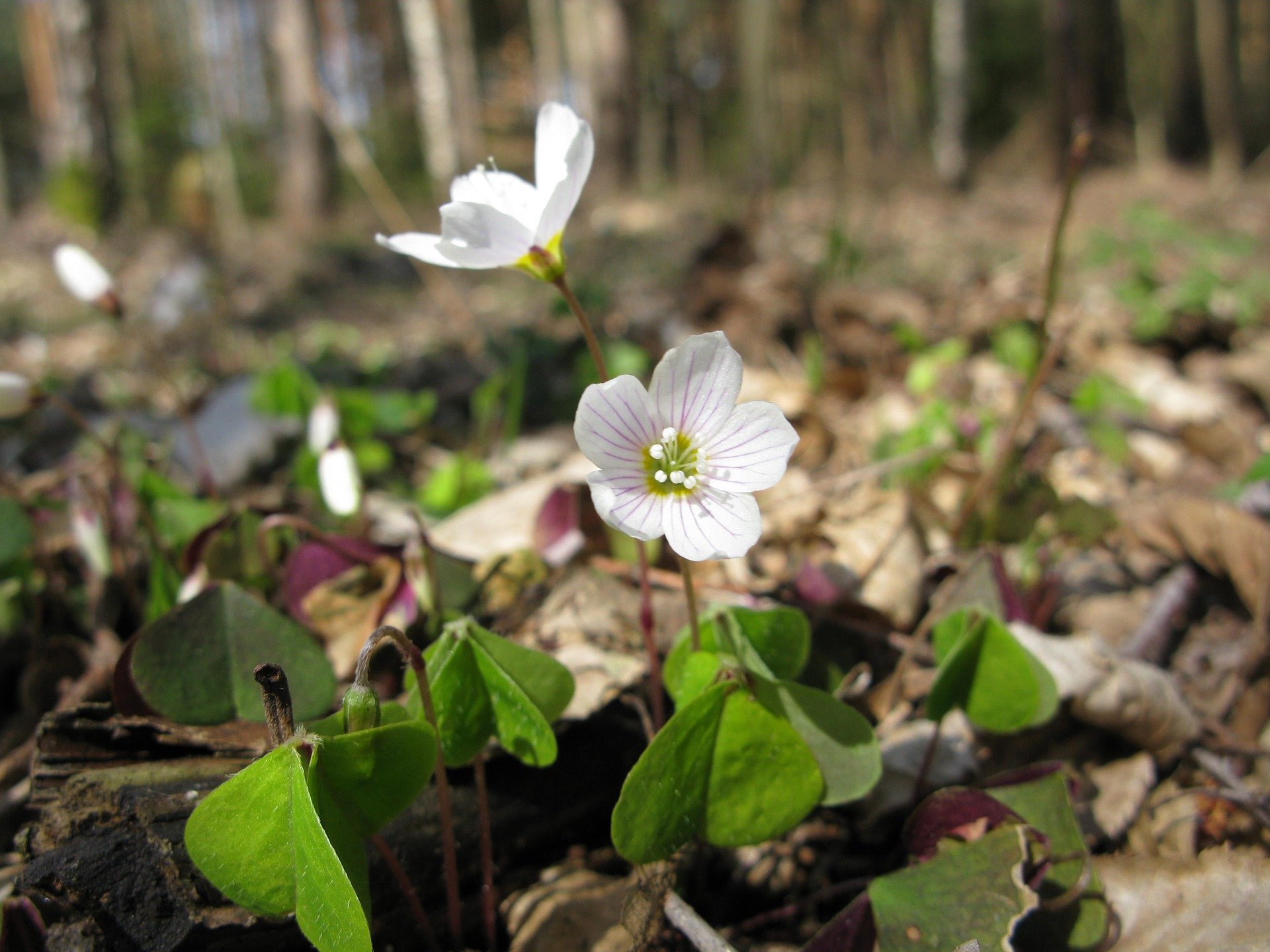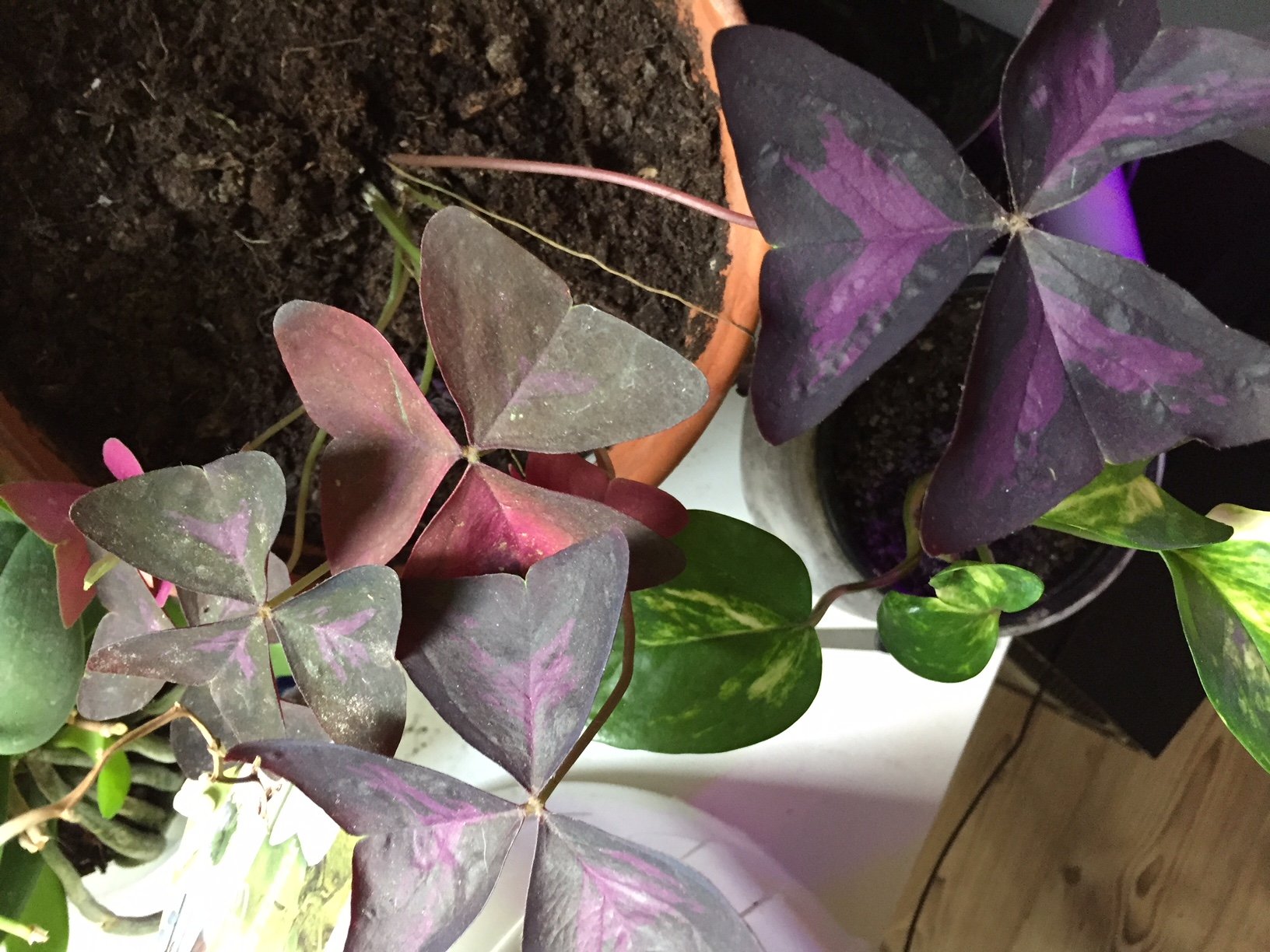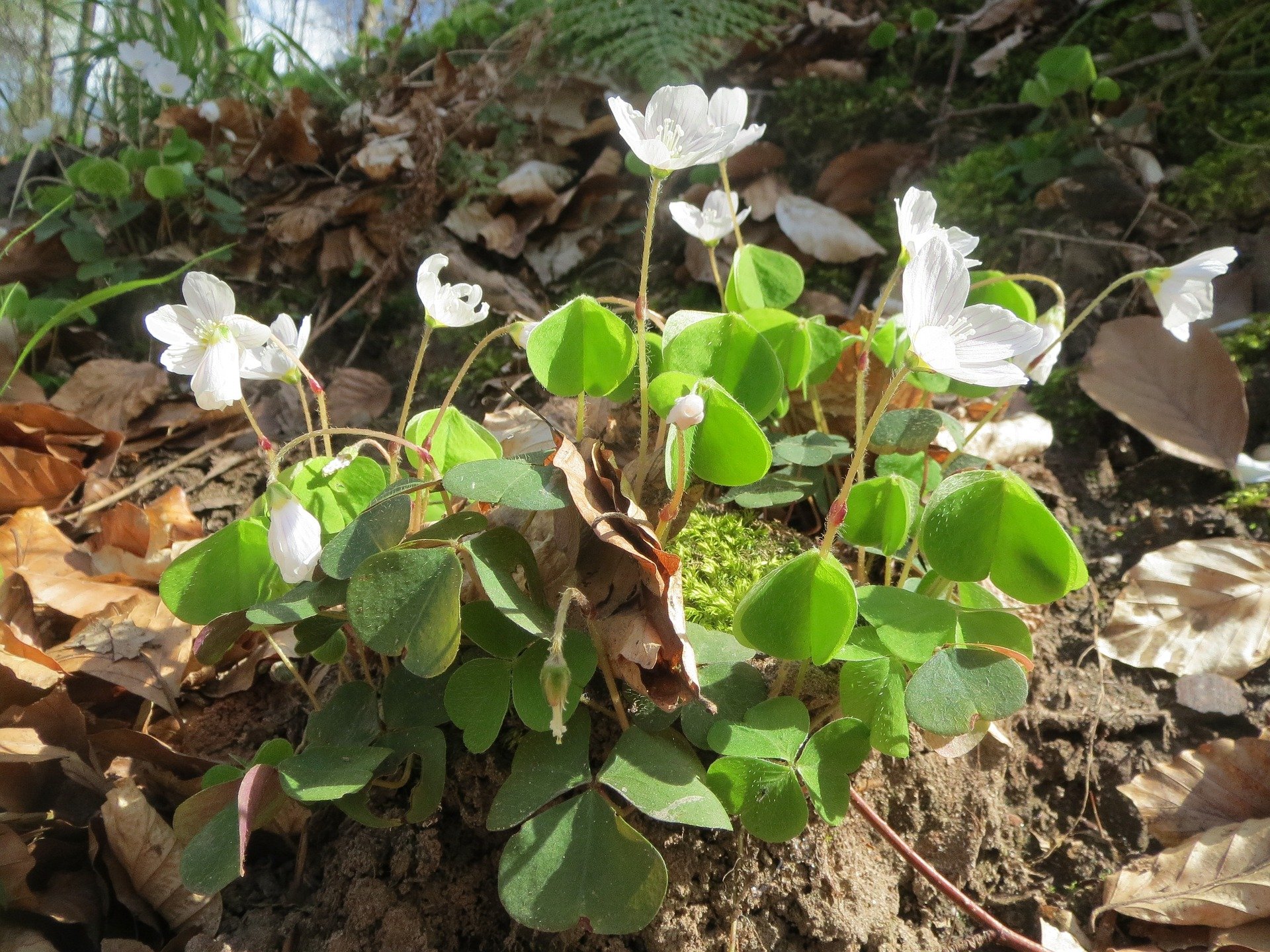You can buy it not only in the summer time, in fact, this plant is also available at the turn of the year. It is a favorite gift in a small pot, decorated with a small chimney sweep. Lucky clover or Oxalis triangularis is becoming more and more popular among plant lovers. Its pretty purple leaves enchant every home into a small fairy tale forest. If you are also interested in this unusual plant, then we have some tips for you here, so that it also grows lush in your apartment.
Contents
- 1 The history of Oxalis Triangularis
- 2 The right location of your Oxalis Triangularis
- 3 How to care for your Oxalis Triangularis correctly
- 4 The right soil for your Oxalis triangularis
- 5 Watering: do not overdo it
- 6 How to fertilize your Oxalis Triangularis correctly
- 7 Do you have to repot your lucky clover?
- 8 This is what you need to keep in mind during the winter
- 9 Oxalis Triangularis: How to propagate it
- 10 Is the Oxalis Triangularis poisonous?
- 11 The perfect room for your Oxalis Triangularis
- 12 Tips for problems with your Oxalis Triangularis
- 13 Author
The history of Oxalis Triangularis
The triangular lucky clover or Oxalis triangularis originates from Brazil and belongs to the wood sorrel family. It is not related to our native clover, these species are legumes.
You can buy Oxalis triangularis in purple-bordeaux with white-pink flowers or with green leaves and white flowers. The most special thing about this plant is its mobility. They can unfold their leaves during the day to catch more light and in the evening they fold up the leaves again to save water.

The right location of your Oxalis Triangularis
The Oxalis Triangularis likes to stand in a bright but not fully sunny location. You should protect it from the burning midday sun. In summer, the lucky clover thrives best outdoors, the rest of the year it can stay in a bright, not too warm place on the windowsill. The maximum indoor temperature is about 21°C and should not fall below 11°C.
How to care for your Oxalis Triangularis correctly
When caring for your Oxalis, there are a few things to keep in mind. We will show you how to grow your plant beautifully and lushly.
The right soil for your Oxalis triangularis
The best soil for your Oxalis triangularis is loose and high quality potting soil. It is better to use a reputable potting soil.
Watering: do not overdo it
Water your Oxalis triangularis only when the top layer of soil has dried. This houseplant is very sensitive to moisture, so make sure that there is no water in the saucer or planter.
As watering water and for daily spraying you use lime-poor, stale and room-warm water. Ideally, clean rainwater is suitable here.
How to fertilize your Oxalis Triangularis correctly
During the growth phase (between March and October) you can fertilize your Oxalis every 2-3 weeks with standard flower fertilizer.
Do you have to repot your lucky clover?
You should repot your oxalis in a new pot with fresh soil immediately after purchase, because usually the purchased plant is placed in inferior soil and the pots are much too small. Later you will only have to repot your lucky clover if the pot has become too small.
This is what you need to keep in mind during the winter
Oxalis Triangularis is not hardy and should be brought back indoors in the fall. It can stand on the windowsill all year round, so it does not need a rest period in winter. Just make sure it’s not right next to the heater, the plant can’t tolerate too much heat.
Some plants lose their leaves during the winter months, they retreat in the cold and sprout again in the spring.
Do you want to bring other plants over the winter? Then check out this article.
Oxalis Triangularis: How to propagate it
The lucky clover has small caterpillar-shaped roots, the rhizomes. These are able to reproduce themselves. You can easily divide your plant, but it is better to do this in the spring. So it has enough time to recover until summer.

Is the Oxalis Triangularis poisonous?
Fresh leaves and flowers are even edible. The leaves taste slightly acidic and can be used as a salad garnish or prepared as a tea. However, they have a high oxalic acid content and should therefore only be eaten in moderation.
Large amounts of lucky clover can be toxic to animals. So don’t panic if your cat has ever gnawed on Oxalis triangularis or just eaten the leaves of the small New Year’s Eve pots. Only if she has eaten an unusually large amount of leaves should she go to the vet immediately.
The perfect room for your Oxalis Triangularis
The perfect room for your Oxalis should be warm and bright. So how about the living room? Here you can place it very decoratively on your windowsill.
Tips for problems with your Oxalis Triangularis
The Oxalis triangularis is incredibly robust against pests and diseases. The only thing that can go wrong with it is wrong care. So always make sure not to water it too much so that its roots don’t start to rot.

So basically, caring for your Oxalis Triangularis is not difficult at all. Always make sure that it is not too moist and gets enough light. It can always be left on your balcony in the summer, but in the fall it should be brought back indoors at the latest.

